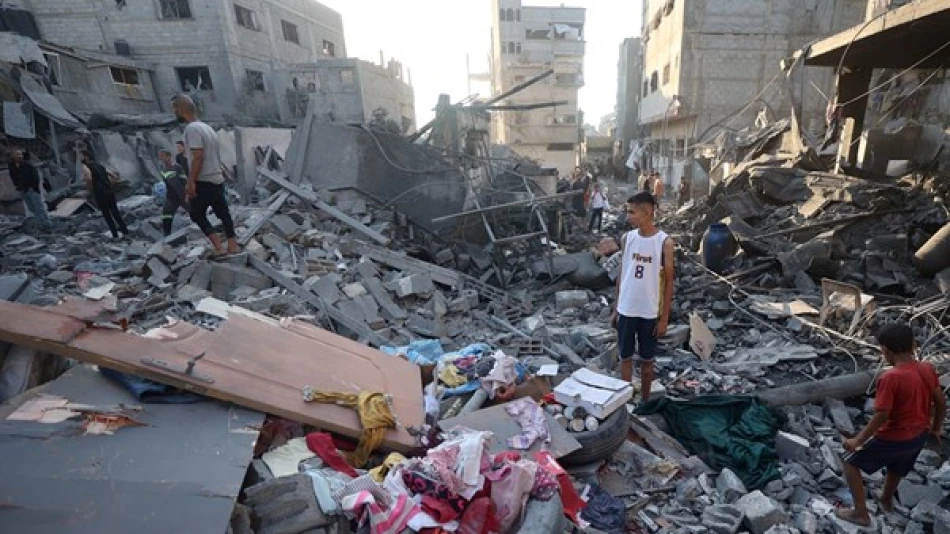
UN Chief Condemns Lack of Empathy for Gaza as Inhumane
UN Chief Condemns Global 'Moral Crisis' as Gaza Humanitarian Catastrophe Deepens
UN Secretary-General António Guterres delivered a scathing rebuke of international inaction on Gaza, declaring that the world is witnessing not just a humanitarian disaster but a fundamental "moral crisis" that challenges global conscience. His unusually direct criticism highlights growing frustration within the UN system over what he described as widespread indifference and lack of empathy toward Palestinian suffering.
Guterres Breaks Diplomatic Protocol with Blunt Assessment
In a video address Friday, Guterres abandoned typical diplomatic language to express his inability to comprehend the "indifference and inaction" displayed by much of the international community. His statement—"lack of empathy, lack of truth, lack of humanity"—represents one of the most pointed criticisms ever delivered by a sitting UN Secretary-General regarding member states' response to an ongoing crisis.
The remarks signal a significant escalation in UN frustration with the global response to Gaza's deteriorating conditions. Guterres has previously faced criticism from various quarters for his statements on the conflict, but this latest intervention suggests he views the situation as reaching a moral tipping point that transcends traditional diplomatic constraints.
The UN's Institutional Dilemma
Limited Authority, Maximum Responsibility
Guterres's stark language reflects the fundamental tension within the UN system: bearing moral responsibility for global crises while lacking enforcement mechanisms to compel action. The Secretary-General's role as the world's top diplomat typically requires measured language, making his direct condemnation all the more significant.
This approach mirrors similar moments in UN history when leaders felt compelled to speak beyond diplomatic norms—such as Dag Hammarskjöld's criticism during the Suez Crisis or Kofi Annan's warnings about Rwanda. However, unlike those historical precedents, Guterres is operating in an era of increased global polarization and weakened multilateral institutions.
Implications for UN Credibility
The Secretary-General's frustration also reflects broader questions about UN effectiveness in contemporary crises. His public criticism of member states could either galvanize international action or further isolate the organization from key power brokers who view such statements as overstepping institutional boundaries.
For the UN's humanitarian agencies operating in Gaza, Guterres's moral stance may provide political cover for their increasingly difficult work, while potentially complicating relationships with donor countries that prefer less confrontational approaches.
Global Response Patterns and Precedents
The "moral crisis" framing places Gaza within a broader pattern of international responses to humanitarian emergencies. Similar criticisms of global indifference emerged during crises in Syria, Yemen, and Myanmar, suggesting systemic challenges in the international community's capacity for sustained humanitarian engagement.
However, the Gaza situation presents unique complications due to its intersection with broader Middle Eastern geopolitics, the Israeli-Palestinian conflict's historical complexity, and competing narratives about responsibility and victimhood. These factors may explain why Guterres felt compelled to use such unusually direct language to cut through what he perceives as deliberate obfuscation.
The Broader Stakes
Guterres's intervention comes at a critical moment for multilateral diplomacy, with institutions like the UN facing questions about their relevance in an increasingly multipolar world. His willingness to risk diplomatic relationships for moral clarity may represent a calculated bet that the organization's credibility depends more on principled leadership than on maintaining comfortable relationships with all member states.
The long-term impact of this approach will likely depend on whether his moral challenge produces tangible changes in international behavior or simply reinforces existing divisions about the UN's proper role in global affairs.
Most Viewed News

 Layla Al Mansoori
Layla Al Mansoori






